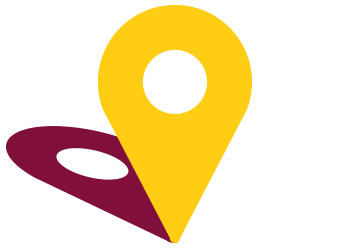Body Image
'Body image' is how we think and feel about our bodies, and how we believe others see us.
'Body image' is not just about weight, but can also be things like:
- Comparing how you look with friends or people on social media
- Feeling as though your body shape is not represented in the media
- Hiding your body because you feel ashamed of it
- Struggling to find clothes for your body
- Birthmarks, surgery scars or acne affecting how you feel about how you look
- Feeling as though your body does not match your gender. For more information on this, see our gender identity page.
Our thoughts and feelings about how we look are often influenced by what we see on social media, people on TV and adverts about 'improving how you look'.
It can be easy to judge yourself against these fictional standards and see them as a 'norm' for what attractiveness should look like.
But it is important to remember that images in the media are not reality; images are often airbrushed, may use a filter and falsely portray everyday life.
Body positivity
Body positivity is an exciting movement to accept all bodies – no matter what shape, size or type! If you are struggling with your body, body positivity can really help you to start to feel better. By thinking positively about how you look, you can feel more comfortable and confident.

Changing how you think about your body may take a long time, and can feel more difficult on some days than others. That's okay!
Top tip: Treat your body with the same kindness with which you would treat a friend.
Don't say anything to yourself about your body that you wouldn't say to a friend.
Feeling bad about your body image?
It is a common experience to feel unhappy with our appearance at some point in our lives. If you're having negative thoughts and feelings about how you look, you might be struggling with your body image.
You may find everyday tasks like eating, getting dressed or going out with friends becoming more difficult, and this can have a serious impact on your mental health.
37% of teenagers felt upset about their body image*
31% of teenagers felt ashamed about their body image*
There is no right or wrong way to look.
It is important to remember that there isn’t one single type of beauty and there is no right or wrong way to look. But if you are struggling, you can try the following:
- Be kind to yourself: try not to compare yourselves to images you see online.
- Recognise the impact that social media is having on the way you feel about your body. Unfollow accounts that make you feel bad, and follow accounts that make you feel good instead.
- Focus on the things that you like about yourself.
- Spend time with people who make you feel positive about yourself.
- Talk to someone you trust about how you feel.
Body Dysmorphia
Body Dysmorphia, or Body Dysmorphic Disorder, is when you constantly worry about flaws in your appearance, focus on specific areas of your body and compare yourself a lot to others.
When you're struggling with your body image, you might change your eating habits – changing what you eat, how much you eat and how often you eat – or change the amount of physical activity you are doing to make you feel like you are more in control of how you look.
If you are finding that your relationship with food and your body is taking over your life, you might be struggling with an eating disorder.
Supporting a friend struggling with their body image
If you have a friend or family member struggling with their body image, you can help support them by:
- Talking to them: ask if they are okay and if they want to talk about what is going on. Remember that they are still person and are more than just their eating disorder
- Learning about eating disorders: this can help you to understand why someone is behaving in a certain way, and lets them know that you care.
- Stop talking about bodies: we can all be guilty of talking about body shape and weight, but this can be an extra sensitive subject for someone with an eating disorder.
- Make sure they know that you are always there to listen and support.
For more information, read the BEAT guide to being there for someone with an eating disorder.
Where to get help
If you're struggling with how you feel and the way you look, you're not alone, and there are services which can really help you.

Offers information and support for anyone affected by eating disorders, including a one-to-one web chat, helpline (0808 801 0677 / 0808 801 0711) and a range of online support groups, which are all fully moderated and anonymous, including a chat group for under 25s.
Opening times:
Weekdays between 9am-8pm
and weekends between 4pm-8pm.

Offers information, advice and support for anyone affected by eating disorders. You can book a one-to-one support call (via phone, video call or online chat) if you are struggling with an eating disorder or worried about someone else.
Opening times:
Monday-Friday, 10am-5pm.



